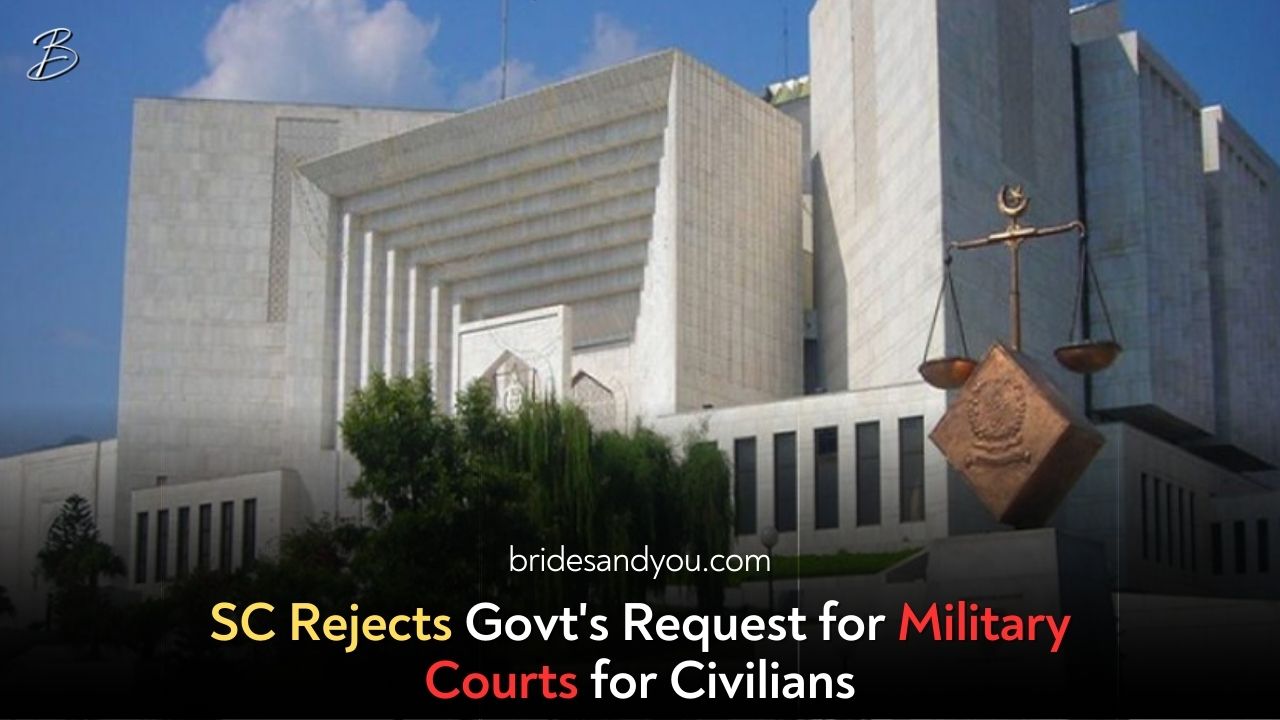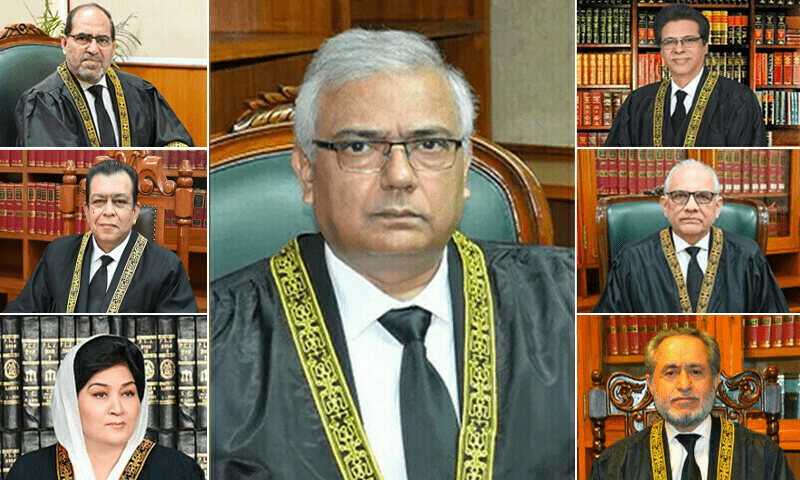Now Reading: Supreme Court Rejects Federal Government’s Request for Military Courts to Announce Verdicts on Civilians Involved in May 9 Riots
-
01
Supreme Court Rejects Federal Government’s Request for Military Courts to Announce Verdicts on Civilians Involved in May 9 Riots
Supreme Court Rejects Federal Government’s Request for Military Courts to Announce Verdicts on Civilians Involved in May 9 Riots

In a significant ruling, Pakistan’s Supreme Court (SC) has rejected the federal government’s request to allow military courts to announce verdicts in the cases of civilians involved in the May 9 riots of 2023. These riots occurred following the arrest of former Prime Minister Imran Khan, during which army installations were targeted, and over 100 civilians were allegedly involved in the attacks.

Key Ruling by the Supreme Court
The case is rooted in the trial of more than 100 civilians who were accused of attacking military installations during the riots. Last year, a five-member bench of the SC had unanimously declared that trying civilians in military courts violated the Constitution, stressing that such cases should be handled by criminal courts under ordinary or special law. However, in December 2023, the SC temporarily suspended its ruling, allowing military courts to proceed with trials, but not to announce verdicts until the government’s appeals were fully heard.
In the latest ruling, the seven-member constitutional bench, led by Justice Aminuddin Khan, dismissed the request to allow military courts to announce verdicts on cases that were already completed. The court emphasized that the military courts had no jurisdiction over civilians, and such trials could only be conducted by criminal courts. The government’s plea to resume the trials in military courts was firmly rejected, upholding the SC’s earlier decision that civilians must be tried in civilian courts.
Background and Legal Context
The case stems from the May 9, 2023 riots, which were triggered by the arrest of Imran Khan. Following the violence, over 100 civilians were arrested for their involvement in attacking military installations. In a landmark ruling last year, the SC had ruled that civilians could not be tried in military courts, as this violated their constitutional rights. Despite this, the federal government continued to pursue trials in military courts, leading to a series of legal battles.
In March 2024, the SC had allowed military courts to proceed with the trials but prohibited them from announcing verdicts until the final decision on the appeals was made. The latest development marks a critical point in this ongoing legal battle, as the SC has upheld its position that civilians should only be tried in civilian courts.
The Significance of the Ruling
This ruling highlights the ongoing tension between the executive and judiciary in Pakistan. The rejection of the government’s request is a clear affirmation of the SC’s commitment to protecting the constitutional rights of civilians and ensuring that military courts do not infringe upon civilian jurisdiction.
The decision is also a crucial step in maintaining the integrity of Pakistan’s judicial system, as it upholds the principle of civilian supremacy over military powers in legal matters. The ruling is being widely praised by legal experts and human rights advocates who see it as a victory for constitutional democracy and the rule of law.
What Happens Next?
The case is far from over, as the government has indicated that it may continue to appeal the SC’s decisions. However, for now, the ruling sets a significant precedent regarding the separation of military and civilian judicial matters.
The SC’s decision also reinforces the importance of due process and the protection of fundamental rights for all citizens, regardless of their involvement in political unrest or protests.













